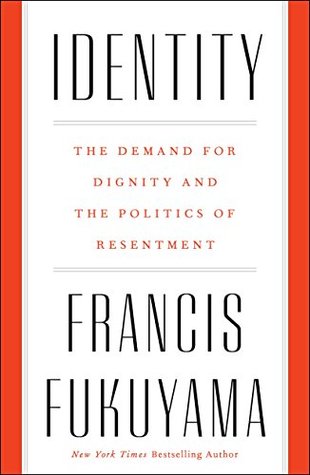More on this book
Community
Kindle Notes & Highlights
Read between
April 4 - June 17, 2019
His economic nationalism was likely to make things worse rather than better for the very constituencies that supported him, while his evident preference for authoritarian strongmen over democratic allies promised to destabilize the entire international order. With regard to character, it was hard to imagine an individual less suited to be president of the United States. The virtues that one associates with great leadership—basic honesty, reliability, sound judgment, devotion to public interest, and an underlying moral compass—were totally missing. Trump’s primary focus throughout his career
...more
To propel themselves forward, such figures latched onto the resentments of ordinary people who felt that their nation or religion or way of life was being disrespected. Megalothymia and isothymia thus joined hands.
Contemporary identity politics is driven by the quest for equal recognition by groups that have been marginalized by their societies.
The French Middle Eastern scholar Olivier Roy has pointed out that many recent terrorists, such as those who staged the Bataclan attacks in Paris in 2015, have a similar background: they are second-generation European Muslims who have rejected the Islam of their parents. (About 25 percent of the new generation of jihadis are converts to Islam with personal stories similar to those of jihadis who were born Muslim.)7 In their early years they appeared to be westernized, drinking alcohol and smoking weed, dating girls, watching sports, and otherwise seeming to fit into their surroundings. Yet
...more
further psychological fact suggests that certain things in contemporary politics are related more to status than to resources. One of the clear findings from experimental behavioral economics is that people are much more sensitive to losses than to gains. That is, they are likely to spend much more effort to avoid the loss of $100 than to receive an extra $100 in income.4 This may explain a historical phenomenon noted by Samuel Huntington, namely that the most politically destabilizing group tends not to be the desperate poor, but rather middle classes who feel they are losing their status
...more
At the time of the ratification of the U.S. Constitution in 1788, only white males with property had full political rights; the circle of rights bearers gradually expanded to include white men without property, African-Americans, indigenous people, and women.
The proponents of identity politics on the left would argue that assertions of identity on the right are illegitimate and cannot be placed on the same moral plane as those of minorities, women, and other marginalized groups. Rather, they reflect the perspectives of a dominant mainstream culture that has been historically privileged and continues to be so. These arguments have obvious truth. Perceptions on the part of conservatives of advantages being unfairly given to minorities, women, or refugees are greatly exaggerated, as is the sense that political correctness has run amok everywhere.
...more
On the right, some have retreated into earlier versions of identity based on race and religion. Former Republican vice-presidential candidate Sarah Palin once characterized “real Americans” as those residing in small towns and rural areas, something that deliberately excluded the diverse populations of U.S. cities. Donald Trump has taken this view to new heights, awakening an ugly form of populist nationalism that would reassert an ethnic or religious understanding of the country. As he said at one campaign rally in 2016, “The only important thing is the unification of the people” because “the
...more
One of the elements of that culture that Huntington emphasized was the “Protestant” work ethic. Empirically, Americans do work much harder than many other peoples around the world—less hard than many Asians, but certainly harder than most Europeans.23 The historical origins of this work ethic may indeed lie in the Puritanism of the country’s early settlers, but who in the United States works hard these days? It is just as likely to be a Korean grocery-store owner or an Ethiopian cabdriver or a Mexican gardener as a person of Anglo-Protestant heritage living off dividends in his or her country
...more
Europeans pay lip service to the need for better assimilation, but fail to follow through with an effective set of policies. The reform agenda here is highly varied since individual European countries approach the problem very differently. Many countries have in place policies that actively impede integration, such as the Dutch system of pillarization. Britain and a number of other European countries provide public funding for Muslim schools, just as they support Christian and Jewish schools. To some extent this simply reflects the geographical concentration of immigrant communities, and was
...more
Identity is the theme that underlies many political phenomena today, from new populist nationalist movements, to Islamist fighters, to the controversies taking place on university campuses. We will not escape from thinking about ourselves and our society in identity terms. But we need to remember that the identities dwelling deep inside us are neither fixed nor necessarily given to us by our accidents of birth. Identity can be used to divide, but it can and has also been used to integrate. That in the end will be the remedy for the populist politics of the present.


